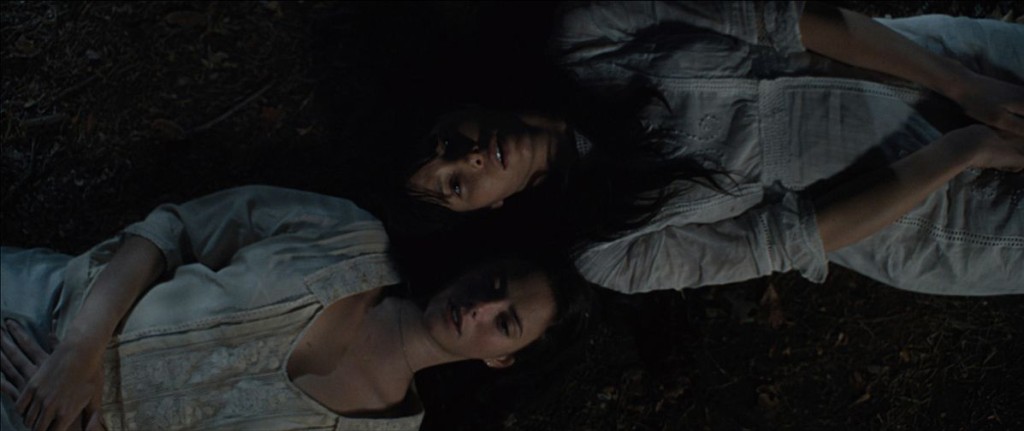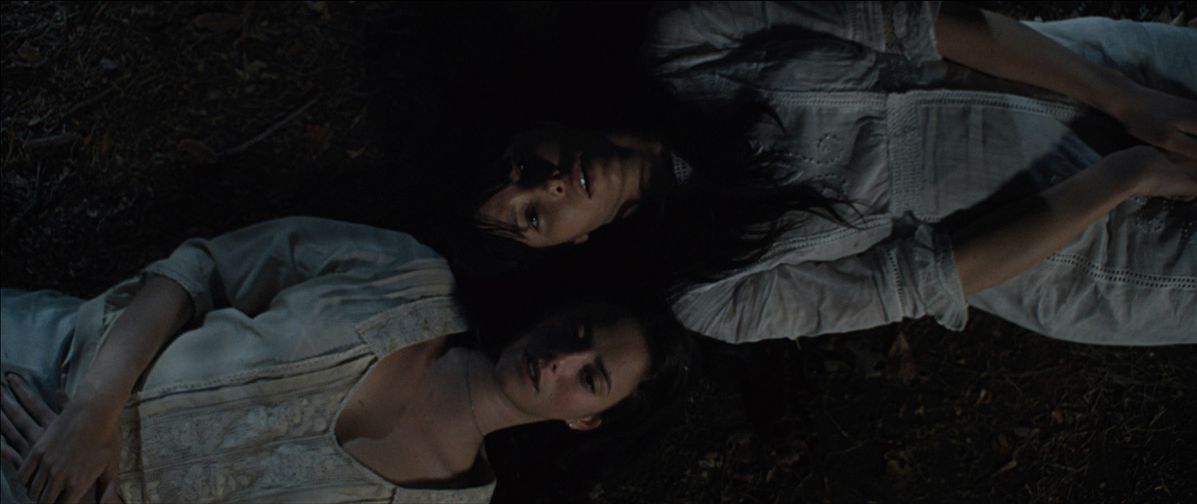 The Truth About Emanuel
The Truth About Emanuel
★★☆☆☆
Dir: Francesca Gregorini
Tribeca Films
96 minutes
Released in select theaters January 10, 2014. DVD available on February 5, 2014.
–
“I’m just a girl,” Emanuel tells us in the opening narration, “a murderer without a motive.” This troubled teen (Kaya Scodelario) has grown up with the strange guilt of knowing her mother died in childbirth, and now finds herself in an uncomfortable house with her father (Alfred Molina) and Janice, her goofy new stepmother (Frances O’Connor). When the beautiful Linda (Jessica Biel) and her newborn move in next door, Emanuel finds herself drawn to the woman, who resembles her own long-dead mother, but soon she discovers Linda is living an almost inexplicable lie.
The world of The Truth About Emanuel is a frightening one, a place where both the concept and reality of motherhood is an emotional horror show; the terror comes not from the creation of a child but after the birth, which is a somewhat unique take and refreshing to see, in an admittedly bizarre kind of way. This universe, framed in the kind of unnaturally peaceful suburban neighborhoods used to such effect in films like Shadow of a Doubt (1943) and Halloween (1978), offers real promise in building toward a nasty sociocultural claustrophobia. It’s a tight, quiet, all-white suburban world, literally every woman in the film ensconced in a picture-perfect home that masks a host of medical and emotional issues attached to their sexuality and fertility. The extremity of this situation works best when presented as stylized rather than as reality, and though The Truth About Emanuel takes steps toward a metaphorical approach, it never completely commits to it.
This lack of commitment to a consistent cinematic tone is made worse by the film’s reliance on isolated moments of heavy-handed symbolism, moments where the troubled teen Emanuel dreams about her dead mother, dreams that eventually escalate into auditory and visual hallucinations. At first, though old-fashioned, these moments work well, but as the film progresses, some implausible finagling takes place to delay the reveal, leading to symbolism overload. This delay is useless, anyway, as the film far too quickly confirms Linda’s secret is both implausible and somewhat banal; once revealed, Emanuel decides, for reasons that are never fully clear, to join in on Linda’s break from reality.
It’s then that The Truth About Emanuel takes on the tone of an 80s-era light horror flick geared toward young teens, a Lady in White (1988) or Return to Oz (1985) without the bite. It’s all there: the vague understanding of mental illnesses, the convenience of coincidences, creepy things that are decidedly un-creepy once they are explained, the unlikely aesthetics of Middle America, even the almost-scary dream sequence at the end. But the performances aren’t up to the standard of those now-cult-classic kid’s horror films, as the kind of acting nuance required to make the film work is beyond leads Scodelario and Biel. And Alfred Molina in a supporting role is so detached from his performance that he more than once utters a complicated line of dialogue with practiced dullness, inadvertently turning it into a howler.
Soon, the slightly skewed reality of The Truth About Emanuel starts to look clueless rather than intentional. We see multiple morning commutes by train where not a single person owns a mobile or a Kindle. Characters do strange things, like nap in the study just to give another character time to sneak into their bedroom, or re-wash clothes that lay for only seconds on a spotless floor. There are even weird bits of sexually-charged dialogue that pop up here and there, discordant moments emulating substance but used only to briefly make us sympathize with Emanuel.
Those moments aren’t necessarily non sequiturs, though, as Emanuel is an impossible character to like, and things must be done to combat this problem. Her struggle with guilt and bizarre relationship with Linda clearly require the audience to sympathize with the girl, but it’s impossible to do so; she’s an unappealing combination of naïve and precocious, and her late-teens pretentiousness, mostly focused on French pop culture — her mysterious, fascinating and dead mother was French, you see — is grating and stale. By the finale, the film has devolved into a clumsy, self-conscious mass of symbolism, unencumbered by either poignancy or relevance.


Pingback: Elsewhere This Week - She Blogged By Night